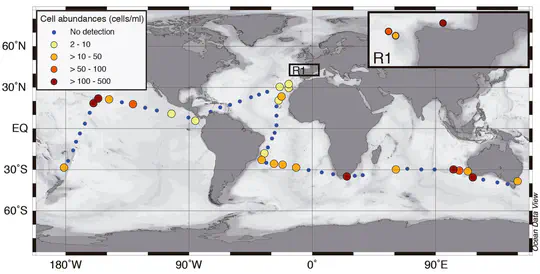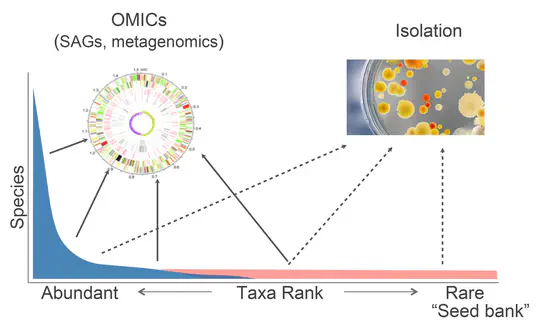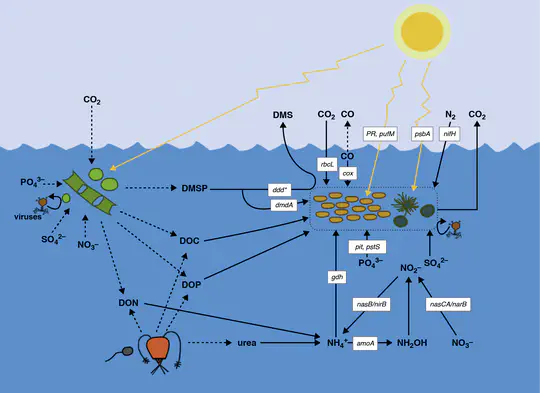Research interests of the EMM group
Microbial cells occupy all marine habitats. In surface oceans, microbial eukaryotes and prokaryotes are at the orders of thousands and millions of cells per milliliter, respectively, but until the last two decades little was known about the taxonomic composition of these microbial assemblages. The use of molecular tools is now allowing us to address the magnitude of microbial diversity and its spatio-temporal distributions. In the EMM Research group, we investigate microbial populations and communities along wide spatial, environmental and temporal gradients, in order to find out the main drivers that determine community structuring patterns at regional and global scales.
Life originated at sea. The first living organisms from our planet appeared more than 3500 millions of years ago and led to the vast taxonomic and functional microbial diversity we see today. To identify the ecologically key microorganisms in the ocean and their diversification processes, a combination of different approaches are needed to fully cover the whole spectrum of microbial diversity targeting both the highly abundant and rare microbial taxa. These approaches included the use of phylogenetic and functional genes and the analysis of genomes from isolated species and from uncultured ones, the later retrieved by Single Cell Genomics or Metagenomics. In the EMM Research group, we study the genomic structure and the genetic heterogeneity of keystone microbial species using comparative genomics. We also investigate the evolutionary mechanisms promoting and maintaining the large microbial diversity seen in natural microbial populations.
Marine microbes are the main players in processes like respiration and primary production that are central in the global carbon cycle. They are also essential in most transformations of elements, including nitrogen, phosphorus and sulfur that are crucial in sustaining the functioning of the ocean and the whole planet. The EMM Research group members study the biogeochemical impacts of marine microbes, together with the genetic, physiological and ecological factors that affect that impact. Our research targets different biological scales ranging from the planet-wide bulk communities to the single-cell activities of protists, viruses and prokaryotes. We combine the use flow cytometry, advanced epifluorescence microscopy and radiotracer techniques with the molecular approaches needed for the phylogenetic identification of the key organisms, together with genomic and transcriptomic proxies of activities involved in global biogeochemical cycles.


